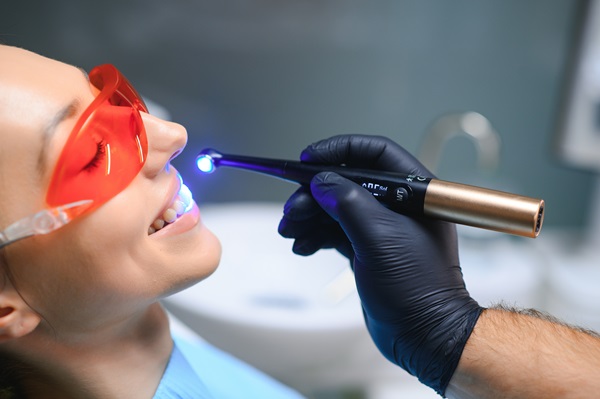How a Root Canal Can Save Your Tooth

Finding out that you need a root canal can be terrifying. This procedure has always been seen in a negative way. In truth, this treatment can restore your dental health. Here are the details on how a root canal can prevent tooth loss.
This procedure can save one’s tooth
The dentist will remove the inflamed or infected pulp material from its chamber. Cleaning the root canal and pulp chamber will follow. Disinfecting and cleaning the area will come next before filling the chamber with gutta-percha. This material will seal the tooth. It will keep away bacteria and food particles. Placing a custom crown over the treated tooth will protect the tooth from future infection or damage.
Without a root canal, the pulp infection will spread to other teeth and seep into the bloodstream. This can be dangerous to one’s general health. The dentist may need to extract the tooth when the infection worsens. But with a root canal, the dentist can restore the tooth and lower the risk of infection. The results can last for many years with proper care and maintenance.
Symptoms one needs a root canal
Dental infection may develop quietly for years. A dental checkup can determine which tooth is at risk of developing a serious infection. There are also symptoms to watch out for. Knowing them can help one get a root canal treatment right away. Here are some of them:
- Tooth loosening happens when the pus from the infected pulp softens the jawbone that supports the tooth. A deteriorating jawbone weakens the tooth’s foundation, which results in tooth loosening.
- Lingering dental pain is also a symptom to watch out for. The deep pain can also spread to the jaw, other teeth, or the face. This means that there is a tooth infection.
- A swollen jaw may result from the pus in the tooth that cannot drain out.
- The tooth can also be tender to the touch. This shows that there are damaged nerves around the pulp.
- Gum swelling and tenderness can also result from a tooth infection.
- A pimple-like growth on the gums near the infected tooth can appear. This pimple tends to ooze out and release foul pus.
- Discoloration can also happen to the affected tooth. The tooth will become darker in color.
The process
Before the root canal, the dentist will order dental X-rays of the tooth. Gentle tapping or touching with a hot or cold substance can help check for pain or sensitivity. An EPT or electric pulp test uses a device that delivers an increasing current through the tooth. The dentist will see if the pulp will react. The dentist will ask if the tooth hurts when the patient bites down on it. Checking for bone or gum swelling around the tooth is also a way to see if it is infected.
The dentist will numb the area first. Placing a dental dam around the tooth will keep the tooth dry during the treatment. Creating an opening on the top of the tooth will provide access to the pulp. The dentist will remove the infected pulp using tiny dental tools. This means that the dentist will take out the tissues, blood vessels, and nerves from the pulp chamber.
Cleaning, disinfecting, and drying the pulp chamber will come next. Filling it with gutta-percha will stabilize the tooth. A temporary filling will seal the treated tooth. There will be a custom dental crown that will restore the tooth’s appearance and bite strength. This restoration will protect the tooth from food particles and bacteria.
After the root canal treatment
The patient may rest for a while before going home. Some patients prefer to rest at home. Others choose to continue with their regular activities. The patient needs to see the dentist for the custom crown fitting and placement. See the dentist if the tooth hurts for at least a week. Here are some tips on caring for the treated tooth:
- Brush after each meal and floss once a day. Be gentle in brushing the treated tooth.
- Eat soft foods, such as yogurt, mashed potatoes, and pasta. Doing so can relieve the pressure off the treated tooth.
- Use an antibacterial mouthwash. This will rinse away the germs.
- Refrain from chewing on the treated tooth. That way, the tooth can rest.
- Avoid smoking and drinking alcohol. These habits can slow down the healing process.
A root canal can help keep your natural teeth intact
Dental damage can reach the pulp. This can be a painful situation. Your dentist will assess your affected tooth and suggest a root canal. This procedure can restore, protect, and strengthen your tooth. Working with your dentist will ensure that you keep your natural teeth for as long as possible.
Request an appointment here: https://www.alluredentalchicago.com or call Allure Dental at (312) 248-7517 for an appointment in our Chicago office.
Check out what others are saying about our dental services on Yelp: Root Canal Treatment in Chicago, IL.
Recent Posts
Have you been told by your dentist that you need a root canal? Read on to learn about the importance of getting this treatment in a timely manner. There is no good reason to delay getting a root canal. Still, many people end up doing just that due to reasons like a fear of dentists…
A root canal is typically the best choice to relieve pain, preserve the tooth, and restore function when inflammation or infection in the fragile inner pulp of a tooth occurs. The dentist will do their best to offer a pain-free root canal operation, ensuring that you are comfortable and calm during the process. So, the…
Are you preparing yourself for your upcoming root canal treatment? Good idea. When you are ready, the entire root canal process is one that will be much simpler for you. Since one of your teeth is in jeopardy, it is vital for you to take any measures so that you can save the tooth. Keeping…
A root canal procedure can induce a lot of dental anxiety. Although the procedure is meant to improve oral health, a lot of people avoid it due to fear of pain or discomfort. However, it is important to know there are ways to overcome those fears.Feeling anxious regarding an upcoming root canal procedure? In this…


